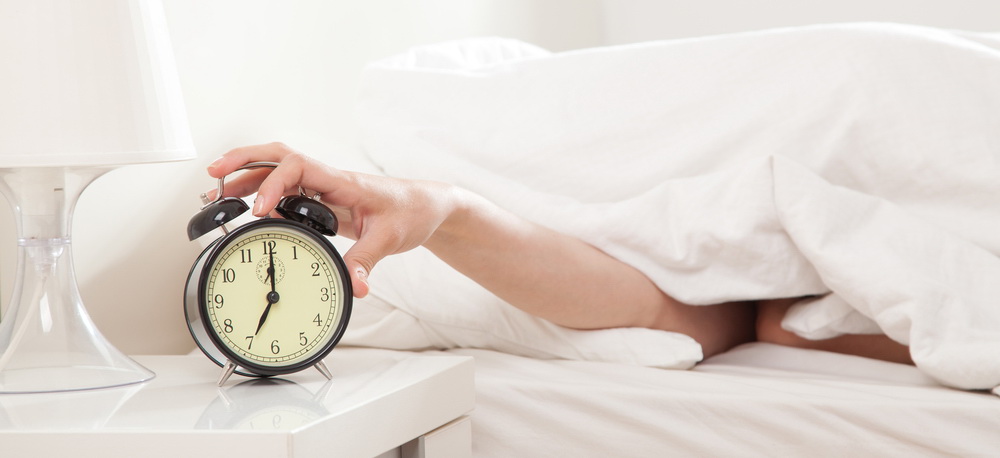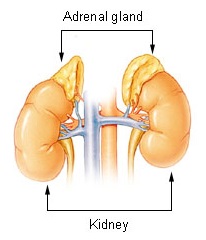
Adrenal Fatigue and New Parents
Everybody can agree that kids, especially little ones, disrupt normal sleep patterns for adults. It isn’t easy to take time out and figure out why you are always exhausted and unmotivated. And since this is an expected phenomenon for most new parents, it is assumed to be the right course of things; a rite of passage in a way.
Today, let’s step back and talk about the changes that occur when we experience sleep disturbances. The chief culprits to focus on are our hormones; in fact one of the main causes, and sometimes even consequence, of sleeplessness is adrenal fatigue.
What is that? Let’s start from the beginning.
What is Adrenal Fatigue?
The adrenal glands are tiny organs situated on top of our kidneys. Don’t let their size deceive you; they are vital in overseeing various systems in our body through hormones they produce, notably the stress hormone cortisol. When regulated effectively this helps us manage stressful situations in an appropriate manner.
Adrenal fatigue is not an official medical diagnosis; it points to a dysregulation in adrenal function. Normally, cortisol levels are high at the beginning of the day and slowly wind down towards the end helping you relax and fall asleep. Its production is increased in response to mental or physical stress, keeping you alert so you can adapt to changing situations as needed. During this time, your body burns through nutrients, finds it difficult to relax and keeps you in a constant attack mode. In cases of chronic stress, this state is maintained until the glands get fatigued and cannot continue efficiently. This can have far reaching consequences because cortisol is a dominant hormone in our body that doesn’t exist in a vacuum – it is closely linked to blood glucose metabolism, sex hormone regulation, thyroid function and energy production. No surprise then that when cortisol levels are affected, you experience symptoms associated with all these systems.

A person experiencing this event is often described as tired and wired – you feel like you are on a treadmill, always on the go from task-to-task (yet somehow still gaining weight) and overwhelmed. When you finally do get to stop, you are exhausted but unable to relax (maybe get a second wind in the evening?) staying up all night making to-do lists in your head. This means you start out the new day feeling run down, lethargic and the cycle continues.

The common solution? Rely on caffeine and sugar for vital boosts to get through the routine of the day. Though this might provide short term relief, it does not provide a lasting long term resolution of the underlying adrenal fatigue.
So, what can you do to help balance your hormones again?
Talk to your healthcare professional and determine if there are other underlying issues (deficiencies or food allergies/sensitivities) that need to be addressed. It is best to get analyzed holistically and get a list of small steps to take towards your larger goals.
Here are some practical tips for dealing with adrenal fatigue:
- Avoid refined sugars, processed foods and alcoholic, caffeinated and energy drinks since they feed into the vicious cycle you are trying to break.
- Eat multiple, small and well-balanced meals spaced through the day rather than fewer larger ones. This helps regulate your blood sugar and can take some strain off your adrenal glands.
- It is vital to never skip breakfast and to always include a good protein source in it (eggs, protein shake from rice, flax, or non-genetically modified soy sources, salads, smoothies, oatmeal etc.).
- Improve the fiber quality and quantity in your diet by increasing the amount of fruits, vegetables, nuts, seeds, beans, legumes and lentils.
- Exercise is vital in managing adrenal fatigue. Ten to fifteen minutes a day of moderate level exercise (on any exercise machine or even just a brisk walk or hike to begin with) can do wonders for hormone regulation. Make sure your heart rate is elevated and don’t forget to add in some cardio and interval training as well.
- Deep breathing can help your body relax before going to bed. Focusing on the inhalation and exhalation during deep belly and alternate nostril breathing can work wonders in clearing your mind.
- Keep aside at least ten minutes in a day, even at the end, for yourself. It isn’t selfish to take care of yourself especially since this will improve the attention you give your children.
These are some general suggestions to get your started on the right path. If you have any questions, please do not hesitate to contact us at Alternative Roots Wellness Center through our phone (802 878 1229) or via email ([email protected]).
[typography font=”Satisfy” size=”24″ size_format=”px” color=”#381b5e”]Written by Akshata Nayak[/typography] MSACN, MS

Between 2007 and 2010, she worked at the University of Rochester, as a research technician, studying the progress and evaluation of traumatic brain injuries. During this time, she attended New York Chiropractic College and earned her second Master of Science degree in Applied Clinical Nutrition in 2010.
Currently, she works as a nutrition counselor at Alternative Roots Wellness Center which was established with her husband. She is also the owner and operator of The Orange Owl which offers 100% natural, vegan and ecofriendly skincare products handmade from scratch by her.











[…] which then turns into Mommy Brain. It seemed to make sense. When you have a newborn, you are sleep deprived and focusing on pure survival. Your brain can’t think beyond this urgent need to keep a baby […]